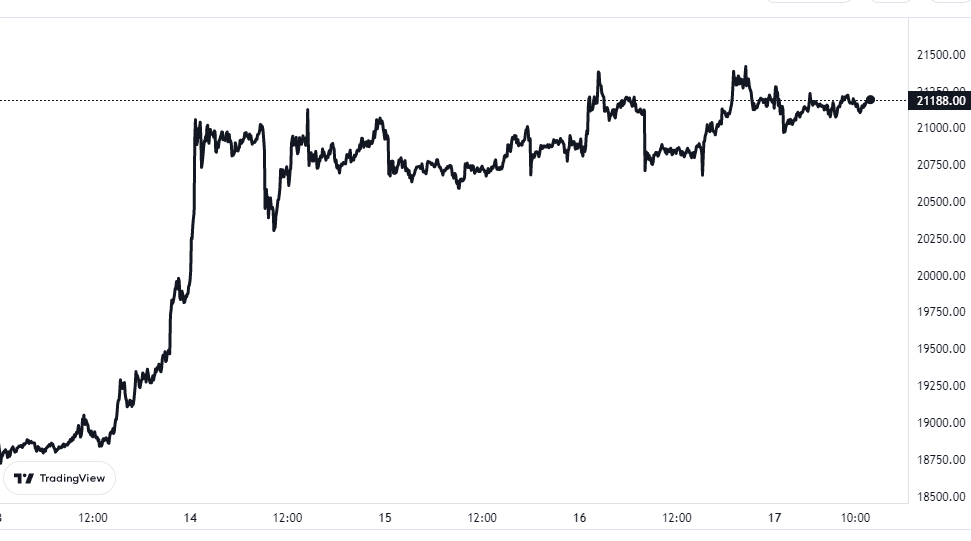Data shows the Bitcoin mining difficulty has risen by 10% in the latest network adjustment and has set a new all-time high.
Bitcoin Mining Difficulty Sets New ATH Of 37.59 Trillion
The “mining difficulty” is a feature on the Bitcoin blockchain that controls how hard miners currently find it to mine on the network. The reason such a concept exists, to begin with, is that the BTC blockchain intends to keep the “block production rate” as close to a constant, standard value as possible.
The block production rate is the rate at which miners are currently hashing new blocks on the network (or more simply, the speed at which they handle transactions). However, as this rate is dependent on the miners’ ability to mine, it can fluctuate whenever miners move in and out of the network.
The total amount of computing power that miners have connected to the blockchain is known as the “hashrate.” Whenever this metric’s value changes, so does the block production rate. But as noted earlier, the network wants this value to not change like this and instead stay around a constant.
So to remedy this problem, what the Bitcoin blockchain does is that it notches up or down the mining difficulty accordingly. For example, if the hashrate goes down, miners become slower due to the lesser power available, and thus the block production rate decreases. The network counters this by dropping the difficulty just enough that the miners still connected to the chain are able to hash new blocks at a sufficiently faster rate.
The Bitcoin network makes such switches in the difficulty in periodic difficulty adjustments, which take place approximately every two weeks. This entire process is fully automatic, as the difficulty is an inbuilt feature of the BTC code.
Here is a chart that shows the trend in the BTC mining difficulty over the past year:

As displayed in the above graph, the Bitcoin mining difficulty has sharply risen in the most recent adjustment and has set a new all-time high. The reason behind this sudden 10% increase in the indicator’s value can be seen in the chart for the mining hashrate:

From the graph, it’s visible that the 7-day average Bitcoin mining hashrate had declined to pretty low levels not too long ago, which kept the difficulty down. Recently, however, the metric’s value has rapidly climbed and is around all-time high values now.
It’s because of this rapid increase in the hashrate that the network was forced to make such a large positive adjustment in the difficulty.
BTC Price
At the time of writing, Bitcoin is trading around $21,100, up 23% in the last week.











